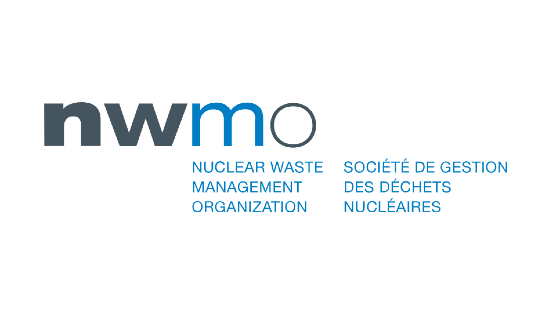TORONTO, March 3, 2015 – The Nuclear Waste Management Organization (NWMO) is concluding preliminary assessment work in two communities engaged in learning about Adaptive Phased Management (APM), Canada’s plan for the long-term management of used nuclear fuel.
New geological studies in the vicinity of Creighton, Saskatchewan and Schreiber, Ontario revealed that areas assessed near both communities have geological complexities that reduce the likelihood of finding a suitable site for either area to safely host a used nuclear fuel repository.
“We have collected and interpreted new data using high-resolution airborne geophysical surveys and geological field mapping, which provided a deeper understanding of the geology in these areas,” said Dr. Mahrez Ben Belfadhel, Director of Geoscientific Site Evaluations at the NWMO. “These latest studies show there is limited potential in the areas of Creighton or Schreiber to find a repository site that would meet the safety requirements of the project.”
Preliminary Assessments are the third of nine steps in a multi-year process for evaluating potential suitability of communities to host a deep geological repository and an associated Centre of Expertise. Studies and engagement associated with this step are ongoing in areas in or near nine Ontario communities: Blind River, Central Huron, Elliot Lake, Hornepayne, Huron-Kinloss, Ignace, Manitouwadge, South Bruce and White River.
“The NWMO is grateful for the opportunity to work and learn with the people of Creighton and Schreiber,” said Kathryn Shaver, Vice President of APM Engagement and Site Selection. “These communities should be proud of all they’ve done to help advance this important national infrastructure project.”
It will take several more years of detailed technical, scientific and social study and assessments, and much more engagement with interested communities, First Nation and Métis communities and their neighbours before a preferred safe site for the project can be confirmed.

